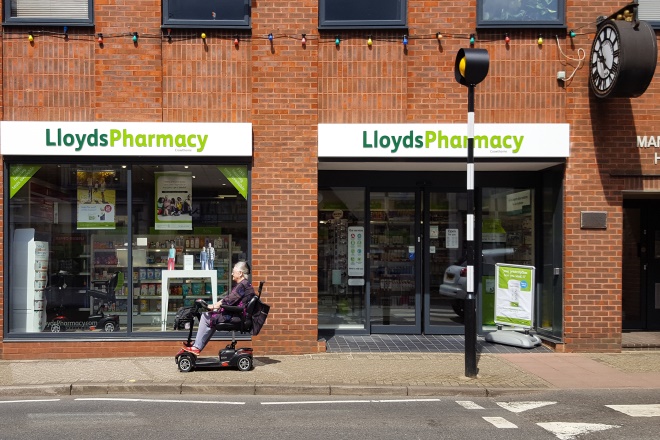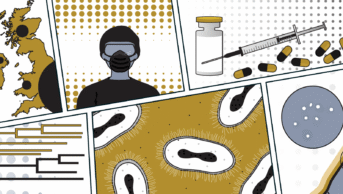
Shutterstock.com
Open access article
The Royal Pharmaceutical Society has made this article free to access in order to help healthcare professionals stay informed about an issue of national importance.
To learn more about coronavirus, please visit: https://www.rpharms.com/resources/pharmacy-guides/wuhan-novel-coronavirus

Source: Shutterstock.com
A statement from McKesson, which owns LloydsPharmacy, said it had put processes in place to “minimise” the impact of shortages of medicines
The owner of LloydsPharmacy has said there is “unprecedented demand” for over-the-counter painkillers as a result of the COVID-19 pandemic.
A statement released on 12 March 2020 from McKesson said it had put processes in place to “minimise” the impact of shortages of medicines and to continue to be able to provide a “consistent supply of critical products” from its stores.
The statement added: “We are doing everything we can to ensure we provide a consistent supply of medicines. This includes sourcing from multiple providers, and putting commitments in place with manufacturers to secure supply.”
Meanwhile, Martin Sawer, executive director of the Healthcare Distribution Association — the membership organisation for UK wholesalers — told The Pharmaceutical Journal that while there are currently no medicines shortages in the UK, there could be issues “around the corner”.
“The demand level for medicines across the board from community pharmacists, doctors and patients has gone up dramatically compared to what it usually is this time of year,” he said.
However, he added that “there are not supply shortages”.
“There may be cases where deliveries into pharmacies may not be the [entire] amount they ordered because they are ordering a lot more than they would normally, so they are not getting the whole delivery the first time.
“The situation is just like supermarkets — they’ve got enough food but people are taking things off the shelves. We’ve got enough medicines.”
Sawer added that wholesalers were using drugs from the stockpiles created for Brexit, but added: “I wouldn’t say I’m not worried [about the impact of COVID-19]. The situation with the coronavirus changes quite quickly and supplies can change quickly but usually that is down to a manufacturing problem which we didn’t know about.
“We are managing at the moment and I feel confident, but there could be a manufacturing issue around the corner.”
A spokesperson for Phoenix, one of the UK’s largest pharmaceutical wholesalers, said it had seen a “considerable increase” in demand for medicines including paracetamol and Calpol.
“We have put in place some order restrictions for certain products to ensure equitable supply across the UK, but again emphasise that customers should only purchase according to need,” they said.
“Prices for some medicines have increased, but this is beyond the control of medicine distributors like Phoenix”.
Similarly, Alliance Healthcare said it had faced similar pressures.
A spokesperson for the wholesaler said: “There has been a significant increase in the demand for products such as paracetamol and ibuprofen over the last few weeks, which has caused some supply constraints.”
Gordon Hockey, director of operations and support at the Pharmaceutical Services Negotiation Committee (PSNC), said the government had already “approached medicine suppliers to assess the impact that COVID-19 could have on the supply chain”.
“The PSNC is keeping a close eye on the generic medicines, including paracetamol, affected by recent price hikes and is making applications to the Department of Health and Social Care (DHSC) for price concessions in the usual way,” he said.
“The PSNC has also commenced discussions with the DHSC on protection for pharmacies against sudden price rises and launched the Community Pharmacy COVID-19 Forum, providing an opportunity for information sharing with other pharmacy and supply chain bodies, DHSC and NHS England and NHS Improvement.”
You may also be interested in

Everything you need to know about mpox

Norovirus and strategies for infection control
